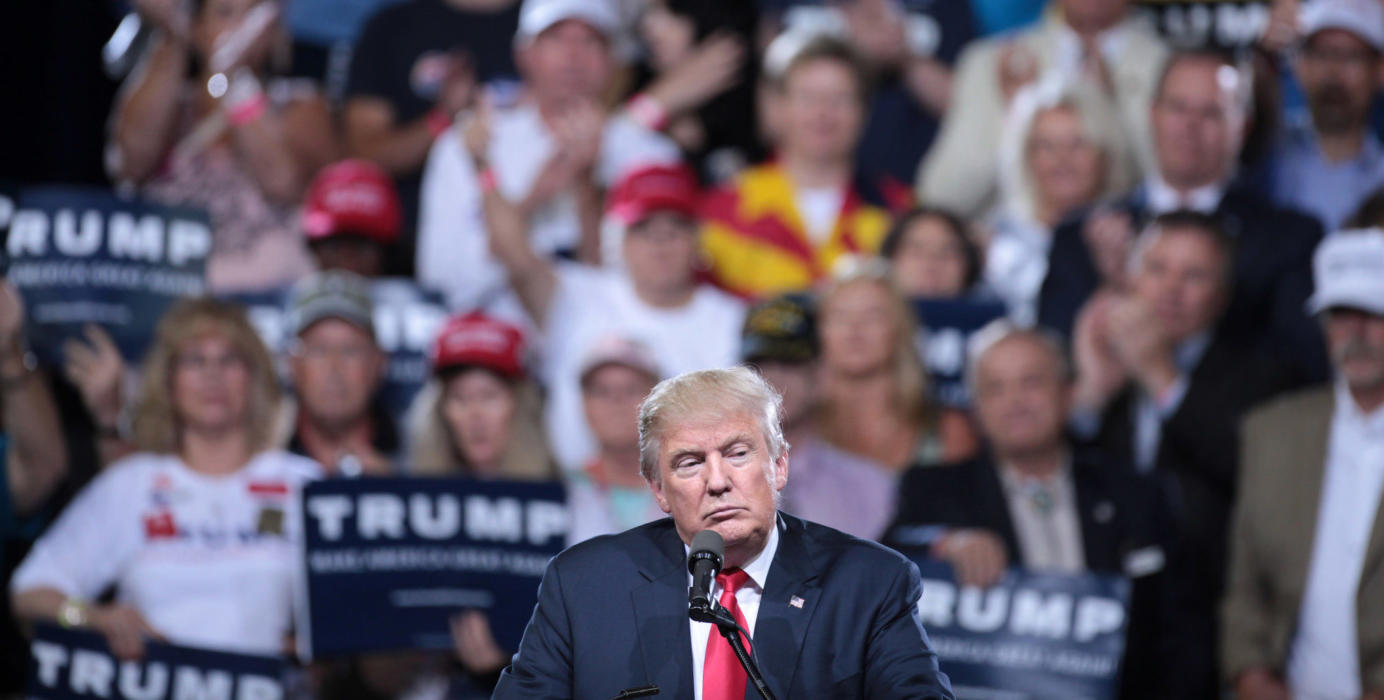Today Joshua Green reports on the results of an internal poll commissioned by the Republican National Committee on the midterm elections. There are two significant findings that don’t bode well for the GOP. The first one demonstrates what happens when your base voters live in an epistemically closed bubble and only believe the lies their president tells them.
Fully half of self-identified Republicans don’t believe Democrats are likely to win back the House. And within that group, 57 percent of people who describe themselves as strong Trump supporters don’t believe Democrats have a chance (37 percent believe they do)…
The internal RNC study finds that complacency among GOP voters is tied directly to their trust in the president—and their distrust of traditional polling. “While a significant part of that lack of intensity is undoubtedly due to these voters’ sentiments toward the President, it may also be partly because they don’t believe there is anything at stake in this election,” the authors write. “Put simply, they don’t believe that Democrats will win the House. (Why should they believe the same prognosticators who told them that Hillary was going to be elected President?)”
Complacency is a death knell for a party that hopes to maintain majorities in the midterm elections. Everything from attacks on the media to Trump’s delusional claims about a red wave have given his supporters a sense of over-confidence, which leads to complacency. That is what happens to a post-truth party.
When it comes to persuadable voters, here’s the other finding that should be troubling for Republicans:
The survey found that increasing funding for veterans’ mental health services, strengthening and preserving Medicare and Social Security, and reforming the student loan system all scored higher than Trump’s favored subjects of tax cuts, border security, and preserving the Immigration and Customs Enforcement agency.
That’s another way of saying that the few Republican policy positions that are still in play (ie, tax cuts and xenophobic immigration policies) aren’t very popular with voters. As Jonathan Chait suggests, that is probably why Ted Cruz, in his high-stakes battle with Beto O’Rourke, is focusing on all kinds of cultural distractions and lies about his opponent rather that touting conservative policy positions.
Ted Cruz is running for reelection in Texas trying to humanize himself by talking about basketball, and accusing his opponent, Beto O’Rourke, of liking tofu, hating the national anthem, and plotting to ban barbecue. What’s notably missing from Cruz’s campaign message is any recognizable conservative program. The conservative agenda has become at best a distraction, and at worst a liability.
That is what happens to a post-policy party.
The road Republicans took to becoming both post-truth and post-policy began long before Trump was elected president. The former started when the party had to convince the public that what George H.W. Bush called “voodoo economics” (tax cuts for the wealthy combined with increased defense spending) would trickle down to everyone else. The utter failures of Dubya’s adherence to those economic policies, as well as the incursion into endless wars in the Middle East, were the final straw. For the most part, Republicans quit trying and simply settled on a policy of obstruction during the Obama years, followed by an appeal to nostalgia voters in 2016 and beyond.
Given all of that, it should come as no surprise that Republicans are heading into the midterm elections with a base that has been fooled into complacency and a general electorate that isn’t interested in their policy proposals. All they’ve got left is fear-mongering about those scary liberals.
This is why I’m skeptical of any rumors about a possible resurgence of the Republican Party among its more moderate members. That would have to start with leaders who are willing to tell the truth and want to govern rather than simply play power games. In order to accomplish that, any resurgence would have to be based on policies that could be demonstrated to have a positive impact on the economic and national security interests of Americans. Whenever #NeverTrumpers attempt to articulate what that would look like, they start sounding a lot like Democrats.
I don’t have a crystal ball, so I have no idea about what happens to a political party once they’ve gone completely off the rails with their post-truth and post-policy platform. But I’d put a lot of money on a bet that we’re about to find out.



